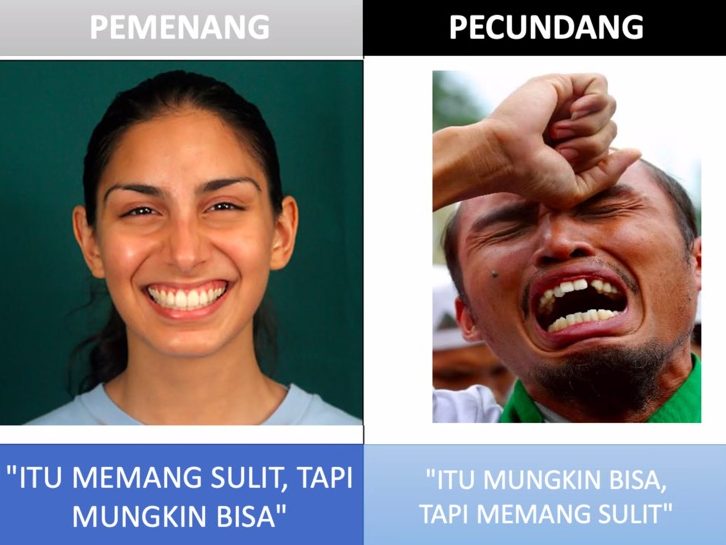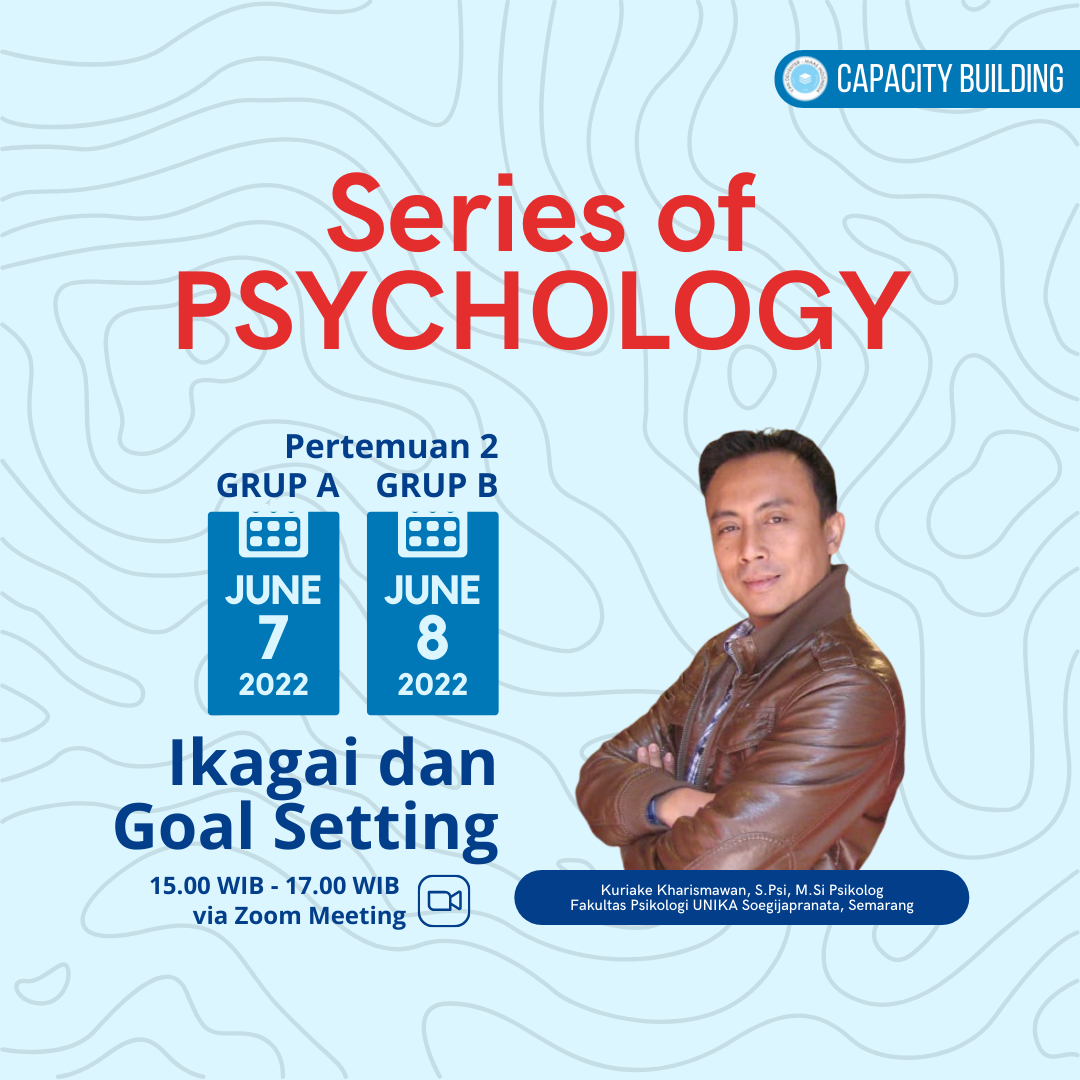Series of Psychology (Part 2: Ikigai and Goal Setting – June 7 and June 8, 2022)
In Part 2, participants are divided into 2 groups (Group A and Group B) facilitated by Kuriake Kharismawan. Tuesday, June 7, 2022 (Group A) and Wednesday, June 8, 2022 (Group B). The session opened with a discussion of the previous assignment. Several participants from Group A and Group B shared their reflection. Anisa Dwi Marpaung (Grantee from Padang State University, Group A) said that teachers from Special Education have general demands. A good teacher must have social skills, a pedagogical understanding, a good personality and be able to create an education that suits students’ needs. A special needs teacher must be technology literate because learning for students with special needs in the future will be strongly supported by technological developments. Adaptive and willing to learn is the key to success for a special needs teacher in the future. This is in line with the opinion of A. Dharul Ghierah (Grantee from Hasanuddin University, Group B) who stated that the Economic students are required to be able to master technology, AI and basic robotic skills to be more productive at work in the future.

Furthermore, Kuriake shared that future demands are a necessity that will be faced by all participants. To be able to achieve any demands in the workplace we need to find ikigai. Ikigai is a Japanese term used to describe pleasure and the meaning of life. Literally, the word Ikigai comes from the word “iki” which means life and “gai” which means value. Ikigai can be interpreted as the reason we live, to live life starting early in the morning. The reason someone wakes up in the morning isn’t always a big deal. Sometimes from small and simple things, we find the meaning of happiness. For example, cooking food to eat with family, or other simple things that we unknowingly can make our hearts excited and happy while doing them. Everyone who has found their ikigai will feel meaningful in life, not only because of getting wealth or property but because what we do is a meaningful thing. For this reason, all participants need to find a passion that can encourage them to do things that are meaningful to them.

Passion is the urge that a person has to do activities that we really like. To find things that we like and interested in, the facilitator invites participants to take a John Holland’s online test (https://www.onlinepersonalitytests.org/riasec/). Based on John Holland’s theory, there are 6 personality types : realistic, investigative, artistic, social, enterprising and conventional. Knowing yourself through this John Holland online test helps participants to find the job that best fits their personality. The expected work must be a detailed and clear thing, not an unmeasured discourse. For that, goal setting needs to be designed by the participants. Goal setting is a concept description of our goals in the future that we will achieve. Goals must be something very clear and describe 3 things as follows: 1). What do I want to be like? 2). What would I like to have? and 3). What do I want to do? Goal setting will encourage us to achieve our goals in the future. To conclude this session, participants were asked to reflect on the goal setting they have made for the next 10 years based on the 3 guiding questions above.


